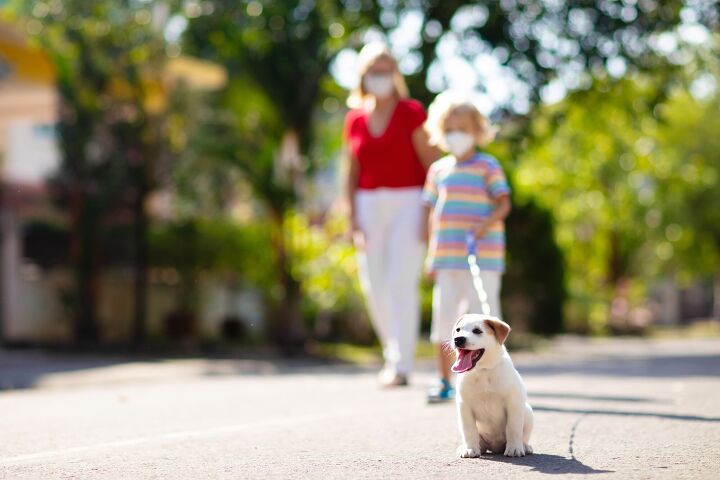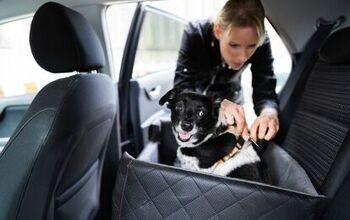Pandemic Puppies Are Behaving Badly, Study Shows

Puppies bought during the COVID-19 pandemic are more likely to exhibit one or more problem behaviors, a new study suggests.
Research by the Royal Veterinary Colledge (RVC) has found that four in five (82%) owners of pandemic puppies have resorted to using punishment-based training methods to try to curb their dog’s problem behavior.
The study found that moving the dog or shouting at them were the most commonly used aversive training methods. Other owners reported using water pistols, rattle bottles, and choke chains.
Only 18% of owners who participated in the study said they didn’t use any aversive training methods or aids.
Not only are aversive training techniques such as yelling at the dog or pulling its lead ineffective but they are also linked to further behavioral problems.
The survey which was funded by the Battersea animal rescue charity asked more than 1,007 UK dog owners to list problem behaviors exhibited by their dogs.
The list consisted of 24 problem behaviors reported by the owners. They ranged from control behaviors ( pulling on the leash) and attention-seeking behaviors, to aggressive behaviors and fear behaviors (anxiety around other dogs or people).
Almost all (97%) owners said their dog exhibited at least one problem behavior from the list. At 21 months, owners on average reported five behavioral problems, while 20% of owners reported that their dogs had eight or more problem behaviors.
According to owners, pulling on the leash is the most common problem behavior (67%), followed by jumping on people (57%), and not coming back when called (52%).
Denise Mariner-Chappell got a Labrador retriever Ted during the pandemic. Strict lockdown measures made it hard to properly train and socialize her new pooch.
“He’s a crazy dog when he’s out,” she said. “He’s just manic. He just wants to play and sniff, and everything, but not with humans.”
Dr. Rowena Packer, the lead author of the study explained that problem behaviors are very common in pandemic puppies. In many cases, owners exacerbate these issues by using punishment-based training methods.
“Although we understand these problem behaviors can be very frustrating for owners, they are often a sign a dog is struggling to cope or that they haven’t been taught an appropriate response in a situation, rather than dogs intentionally behaving badly,” she added.
Packer warned that punishing the dog can make it anxious and fearful and cause it to develop further behavioral problems, including aggression.
According to Robert Bays, Battersea’s senior animal behavior manager, the charity has seen an influx in dogs with behavioral problems coming into centers. These pups are suffering from separation anxiety and show other problem behaviors, which can be linked to training challenges brought on by the pandemic.
“Without the right kind of positive training and support, a small behavioral problem in a puppy or a dog can quickly escalate into a serious issue, so we are deeply concerned with this study’s findings that so many owners are using aversive training methods,” said Bays.
This training approach can cause additional behavioral problems in adulthood and also significantly damage the relationship between the dog and its owner.
The study found that puppies who were still exhibiting problem behaviors by the age of 21 months were at a higher risk of being rehomed or euthanized.
“A key piece of guidance arising from our study is that attending puppy classes is a vital way to support owners in using the best training techniques available.”
Although many pandemic puppy owners missed these training classes due to lockdown restrictions there are thankfully many certified trainers who offer training classes for adult dogs.
Join the PetGuide community. Get the latest pet news and product recommendations by subscribing to our newsletter here.

Nevena is a freelance writer and a proud mom of Teo, a 17-year-old poodle, and Bob, a rescued grey tabby cat. Since childhood, she had a habit of picking up strays and bringing them home (luckily, her parents didn't know how to say NO). When she's not writing for her fellow pet parents, Nevena can be found watching Teo sleep. To her defense, that's not as creepy as it sounds!
More by Nevena Nacic























